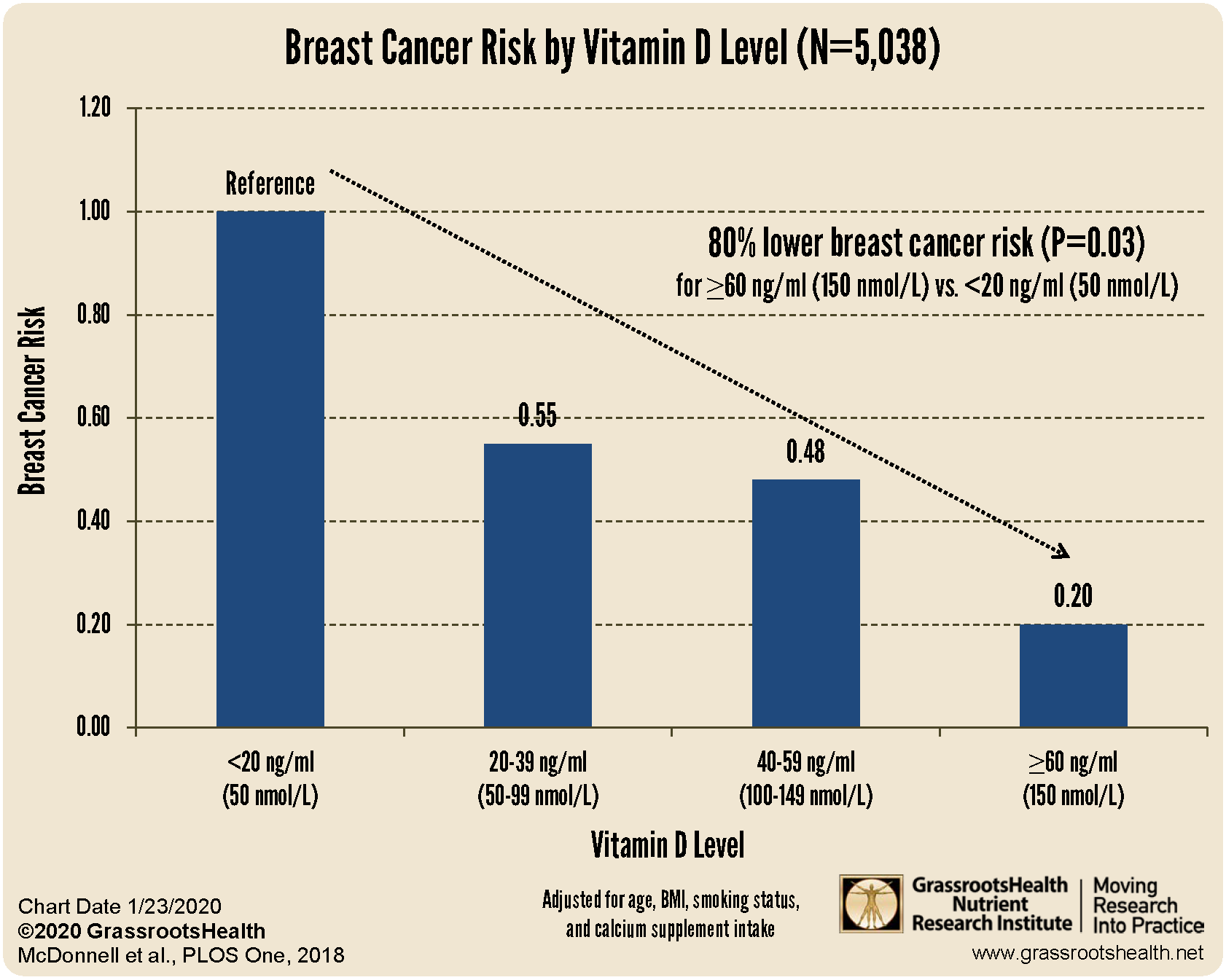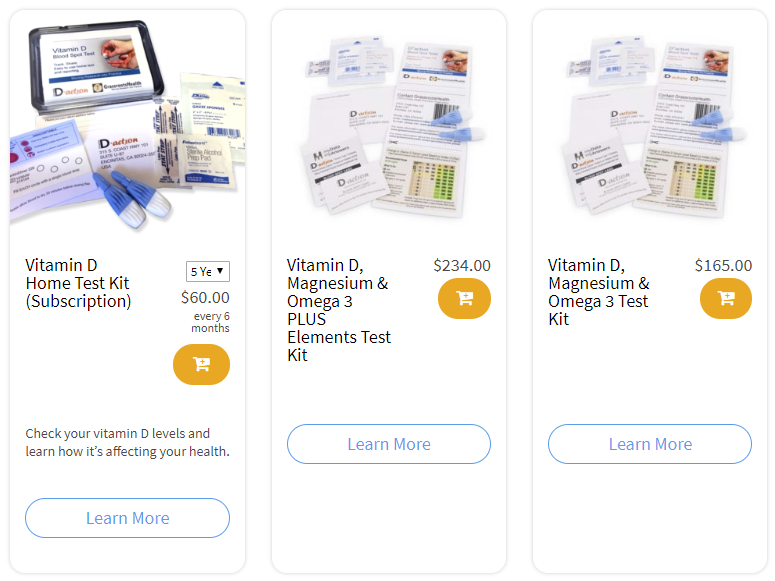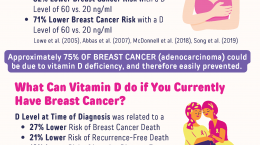Published on February 3, 2020
 In a previous post we summarized a recent study by Song et al. that found a lower risk of breast cancer with higher vitamin D levels. Specifically, these researchers found a 6% decrease in breast cancer risk for every 2 ng/ml (5 nmol/L), which is a 71% lower risk from 20 to 60 ng/ml (50 to 150 nmol/L). In today’s blog we will investigate how these results compare to the breast cancer analysis published by GrassrootsHealth.
In a previous post we summarized a recent study by Song et al. that found a lower risk of breast cancer with higher vitamin D levels. Specifically, these researchers found a 6% decrease in breast cancer risk for every 2 ng/ml (5 nmol/L), which is a 71% lower risk from 20 to 60 ng/ml (50 to 150 nmol/L). In today’s blog we will investigate how these results compare to the breast cancer analysis published by GrassrootsHealth.
In 2018, Grassrootshealth published an analysis of breast cancer risk by vitamin D level among women aged 55 years and older using data from participants in the GrassrootsHealth study and participants from two randomized trials by Dr. Joan Lappe. We also found that higher vitamin D levels were associated with a decrease in breast cancer risk. Specifically, we found that women with vitamin D levels at 60 ng/ml or higher had an 80% lower risk of breast cancer than women with levels less than 20 ng/ml (P=0.03).
The similar findings between these two studies (71% and 80% lower risk for 60 vs. 20 ng/ml) emphasize the importance of improving vitamin D status for breast cancer prevention.
Could Improving Your Vitamin D Level Decrease Your Risk of Cancer?
Make sure you know your vitamin D level, and take steps to keep it within a target of 40-60 ng/ml or 100-150 nmol/L! Through GrassrootsHealth Nutrient Research Institute, you can also test your essential elements magnesium, copper, zinc and selenium, toxins such as lead, mercury and cadmium, as well as your omega-3 levels, inflammation levels and thyroid stimulating hormone (TSH) level. Find out your levels today! Log on to the test selection page (click the link below) to get your tests and see for yourself if your levels can be improved.
Make sure you track your results before and after, about every 6 months!
Click Here to Access the Test Page
How can I track my nutrient intake and levels over time?
To help you track your supplement use and nutrient levels, GrassrootsHealth has created an online tracking system called myData-myAnswers. For each specific supplement, you can track what days you take it, how much, and many other details. This will help you know your true supplemental intake and what patterns of use work for you to reach and maintain optimum nutrient levels. Check it out today!








